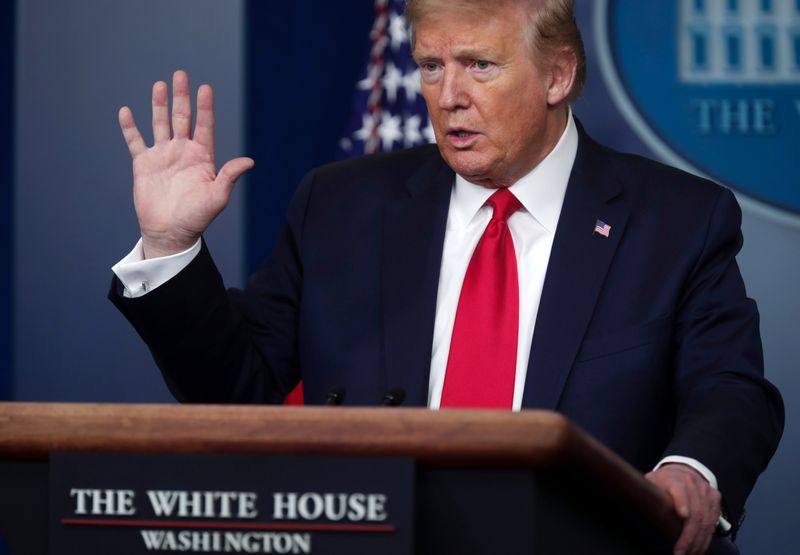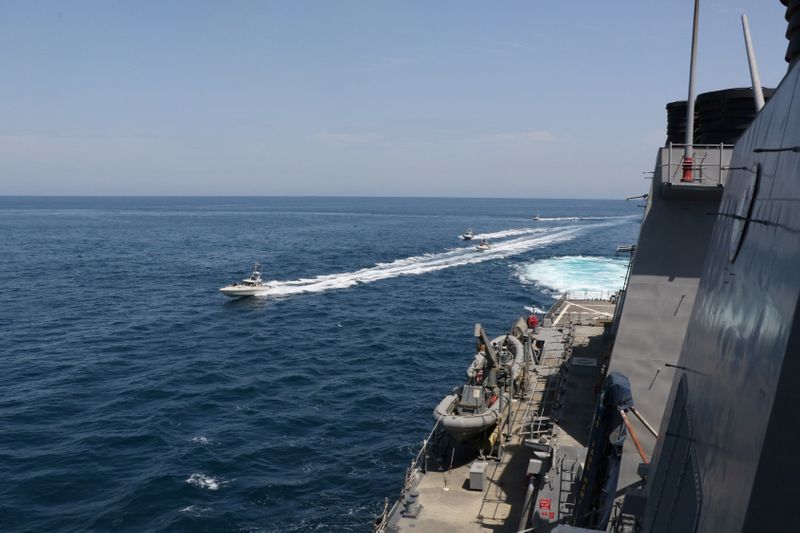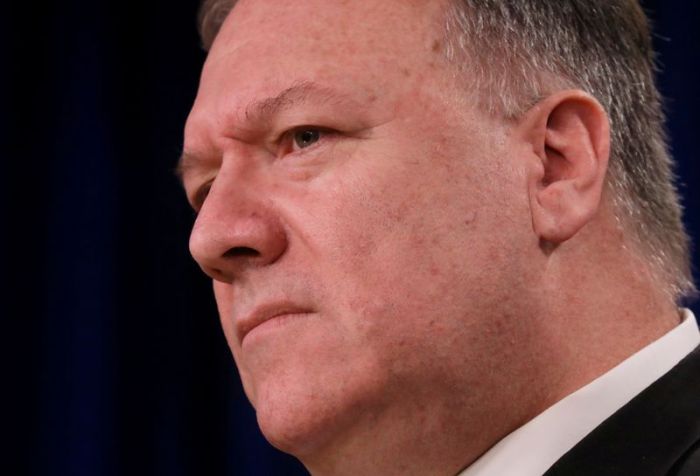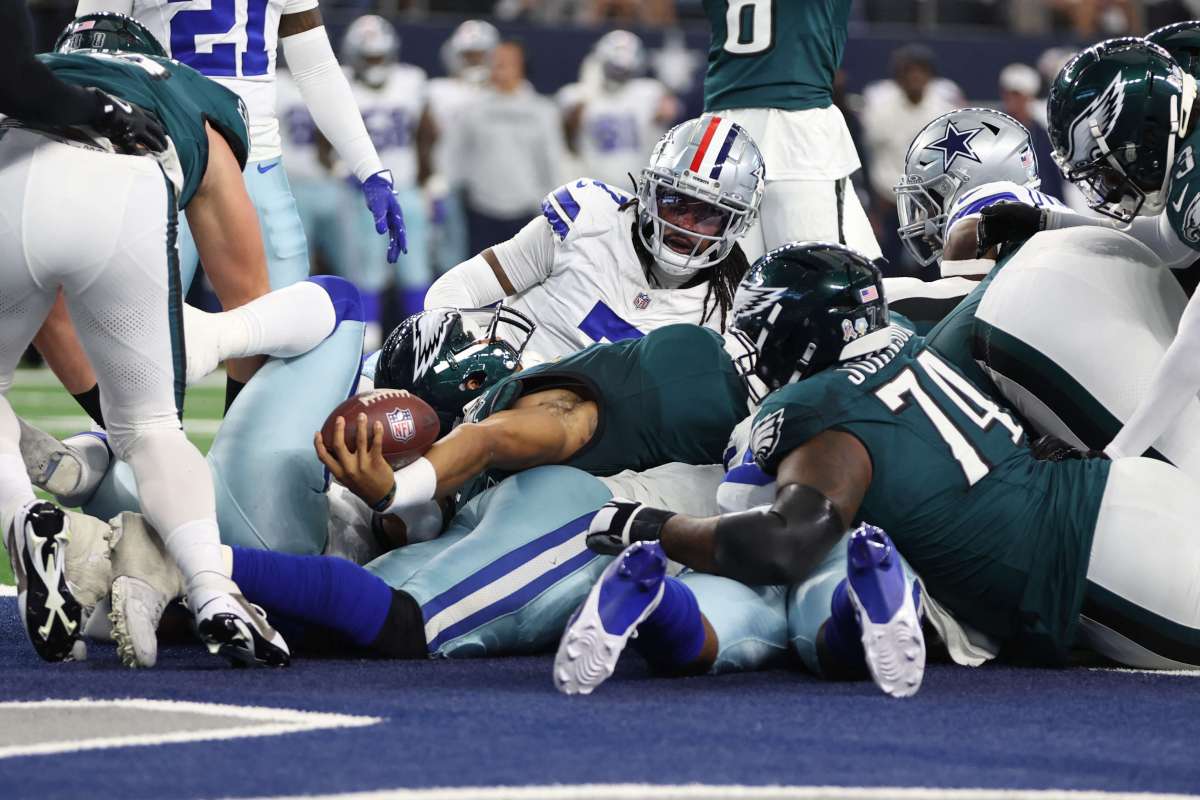WASHINGTON (Reuters) – President Donald Trump said on Wednesday he had instructed the U.S. Navy to fire on any Iranian ships that harass it at sea, but said later he was not changing the military’s rules of engagement.
Close interactions with Iranian military vessels were not uncommon in 2016 and 2017. On several occasions, U.S. Navy ships fired warning shots at Iranian vessels when they got too close.
“I have instructed the United States Navy to shoot down and destroy any and all Iranian gunboats if they harass our ships at sea,” Trump wrote in a tweet, hours after Iran’s Revolutionary Guards Corps said it had launched the country’s first military satellite into orbit.
While the Navy has the authority to act in self-defense, Trump’s comments appeared to go further and were likely to stoke tensions between Iran and the United States.
In a briefing at the White House later on Wednesday, Trump said the military would not be changing its rules of engagement.
“We’re covered, we’re covered 100 percent,” Trump said
Senior Pentagon officials said that Trump’s comments on Iran were meant as a warning to Tehran, but suggested that the U.S. military would continue to abide by its existing right to self-defense instead of any changes to its rules.
“The president issued an important warning to the Iranians, what he was emphasizing is all of our ships retain the right of self-defense,” Deputy Secretary of Defense David Norquist told reporters at the Pentagon.
The United States should focus on saving its military from the coronavirus, an Iranian armed forces spokesman said on Wednesday.
Earlier this month, the U.S. military said 11 vessels from the IRGCN came close to U.S. Navy and Coast Guard ships in the Gulf, calling the moves “dangerous and provocative.”
At one point, the Iranian vessels came within 10 yards (9 m) of the U.S. Coast Guard cutter Maui.
While such interactions at sea occurred occasionally a few years ago, they had stopped recently.
Tensions between Iran and the United States increased earlier this year after the United States killed Qassem Soleimani, the head of Iran’s elite Quds Force, in a drone strike in Iraq.
Iran retaliated on Jan. 8 with a rocket attack on Iraq’s Ain al-Asad base where U.S. forces were stationed. No U.S. troops were killed or faced immediate bodily injury, but more than 100 were later diagnosed with traumatic brain injury.
(Reporting by Idrees Ali, Phil Stewart. Additional reporting by Lisa Lambert, Susan Heavey, Doina Chiacu and Jeff Mason; Editing by Jonathan Oatis and Peter Cooney)


























